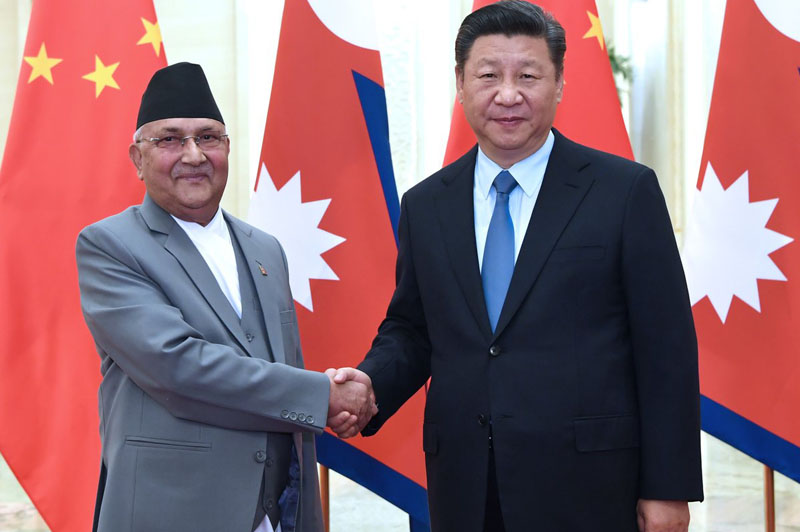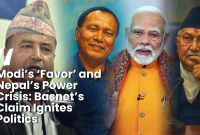Oli’s Lipulekh Gambit: Is Dragging China Into Nepal–India Dispute a Diplomatic Blunder?

Prime Minister KP Sharma Oli has once again courted controversy—this time by openly raising the Lipulekh issue with Chinese President Xi Jinping, questioning India and China’s agreement to use the contested territory as a trade route. According to Foreign Secretary Amrit Rai, Oli bluntly told Xi that “Lipulekh, east of the Mahakali, is sovereign territory of Nepal under the 1816 Sugauli Treaty” and that Nepal expects China’s cooperation on the matter.
At first glance, Oli’s boldness might appear patriotic, but critics warn it could backfire disastrously. Lipulekh has long been a flashpoint between Nepal and India, and dragging China directly into this quarrel risks turning a bilateral dispute into a trilateral entanglement—something Nepal has historically avoided for fear of losing its diplomatic balance between two giants. “Instead of strengthening Nepal’s case with India through dialogue and international law, Oli is pushing Nepal into Beijing’s lap, handing China a say in our sovereignty,” one foreign policy expert noted.
Opposition leaders and other analysts argue Oli is playing with fire. By asking China to “support Nepal” against India, he risks giving Beijing leverage over Kathmandu in future negotiations while simultaneously antagonizing New Delhi. Critics describe the move as “a politics of provocation” that may win applause from nationalist audiences at home but could undermine Nepal’s long-term diplomatic credibility.
The controversy has rattled even ruling party insiders. Some privately admit that Oli’s rhetoric may please the domestic crowd, but it ignores the delicate realities of geography and diplomacy. India remains Nepal’s largest trading partner and transit route, while China has expanded its economic footprint across the Himalayas. “To pit one against the other is a gamble Nepal cannot afford,” a former foreign minister warned, cautioning that the fallout could isolate Nepal in both Delhi and Beijing.
Oli’s China visit was officially billed as an opportunity to boost trade, infrastructure, and cooperation under the Shanghai Cooperation Organization summit. Instead, his Lipulekh intervention has dominated headlines, overshadowing possible economic gains and raising fears of heightened border tensions.
For decades, Nepal’s foreign policy mantra has been to maintain equidistance between India and China. By inviting China into a dispute historically rooted in Nepal–India relations, Oli may have crossed a dangerous line. Whether this gamble will strengthen Nepal’s claim or simply entrench its dependence on Beijing is the question now haunting Kathmandu’s corridors of power.
As Oli basks in the optics of confronting great powers, ordinary Nepalis are left wondering: is their prime minister defending sovereignty, or trading it away in the name of political spectacle?




![From Kathmandu to the World: How Excel Students Are Winning Big [Admission Open]](https://www.nepalaaja.com/img/70194/medium/excel-college-info-eng-nep-2342.jpg)
